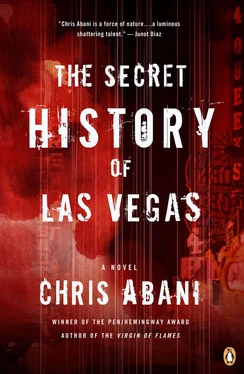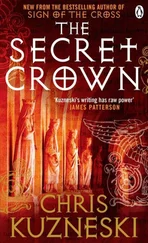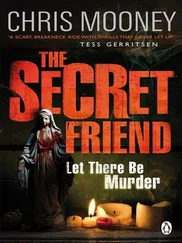Thank you, he said, scraping the toast slowly. The black granules of burned bread gathered in a small pile in the corner of his plate. A few black crumbs missed the pile and flecked his eggs like pepper.
She had her back to him, cutting the grapefruit, releasing a zest of citrus into the kitchen. The sun was higher now and the earlier deep-blue light was now much lighter. He studied her. Every movement she made seemed calculated — no, not calculated, deliberate. As though she was in total control of every muscle in her body.
What, she asked, blushing as she turned into his gaze. She placed the bowl of grapefruit on the table opposite him and sat. There was something in your look, she said.
There was, he asked, looking up from his toast.
Yes, she insisted, spoon poised like a snake ready to strike. He thought he’d never seen her look so beautiful. The whistle of the kettle reprieved him.
Well, she asked, and dunked a bag of green tea in the hot water. The mist reached in a thin column for her face as though in caress. He watched intently, and while part of him wanted to smile, the other felt lost. He had never felt less certain about anything than he did now. The last few days had proved unsettling. In the early years of his internship in Europe he’d had a stint as a family counselor and he always asked his clients what kind of animal their relationship would be, if it were an animal. Now he found himself thinking the same thing about him and Asia. A startled colt came to mind, a colt trying to find its way out of a paddock on a cold winter day. At once terrified and thrilled by the moment and all that it had to offer.
I don’t know what you mean, he said, and his voice trailed off as he shoved some toast into his mouth.
In any other context she would have left the comment where he had, dangling. But this was breakfast and she had made it and it was, well, it was different. This was what couples did, she thought. Fought over nothing.
It sounds like there’s something, she said.
He shoveled the last of the eggs into his mouth, swallowed some coffee. Asia always made him feel this way. Like he had done something wrong, like if he wasn’t careful, he would break this thing between them. He wanted to tell her he loved her. But she knew that. He wanted to have a different life, but he couldn’t articulate what that would be. So he said nothing, gazing into his coffee with resolve. The cup was almost empty, but he didn’t think it was a good time to push back from the table and get some more.
You say you love me, but you keep things from me, she said.
This was getting ridiculous. Might as well get more coffee, he thought, standing.
This was such a nice breakfast, she said. Her grapefruit sat untouched, the cooling green tea clutched in her fist.
I love breakfast with you, he said, pouring coffee into his cup. He returned to the table, where he stirred the fine white powder from the Equal packets into the dark cup. Some of the sweetener spilled around the cup. He thought it looked too much like top-grade heroin and wondered if that was what they used in the movies — all those scenes where actors heaped fingers of uncut heroin into their mouths to test the drug. That much uncut heroin would probably kill a person, he’d said to Asia as they sat watching The French Connection one rainy Saturday. Shh, she’d said. It’s just make-believe.
You’re not eating, he said.
Not much of an appetite, she said, and stood up. At the sink she emptied the fruit down the garbage disposal and ran the tap. He wanted to tell her that the rinds would gum up the works, but the noisy whirring made it impossible and he thought it was probably just as well. He wasn’t sure why they were fighting, not sure if it was just what he’d said or if there was something else, something he would never guess at. Psychiatry wasn’t much use in a relationship.
She turned the garbage disposal off but left the tap running, playing her fingers through the water. With her back to him, Sunil couldn’t see the small smile forming on her lips. She was ridiculously, unaccountably happy. She loved him, that was true, but she loved these moments more, where she got to play at being normal, fights and all. The way it felt in her body. Like an itch that released deliciously under a slow scratch.
Asia, he said. I’m sorry.
She was so happy, she thought she would cry. Don’t be, she said. I’m just being foolish.
And then his cell phone rang. He looked at the display. It was Salazar calling to tell him he’d be late.
May I ask why, Sunil said.
Another batch of dead homeless men turned up at the city dump. I would ask you to come out, but it’s just the same as all the other times.
Identical to two years ago, Sunil asked.
Sunil remembered the bodies. No particular order. No particular ritual. Just tipped out in an untidy pile. He hadn’t been bothered by the fact of the bodies, by the putrefying smell of it all, everything turning to decay so quickly in the Vegas heat. What had bothered him was deliberately misleading Salazar. He was there when Salazar found the girl, and for the briefest moment he felt bad. But he had lost so much himself that the deception was easy to live with.
Identical, Salazar said. I’ll fetch you closer to ten or eleven. I’ll bring road-trip food.
Sure, why not. If you’re chewing, you can’t be talking, Sunil said.
Charming, see you soon.
Sunil hung up.
Asia, watching intently over the brim of her teacup, was smiling.
What is it, he asked.
I was just thinking, she said.
Listen, I’ve got to go get ready. Stay as long as you like.
Do you have a photo album, she asked.
He paused at the door, surprised.
What?
A photo album, she repeated.
No, he said.
So you have no photos of your family?
Where is this coming from, he asked. I thought we weren’t allowed to discuss family, your rules.
My family, she said, not yours. And a lady always reserves the right to change her mind. Lady, she repeated as he opened his mouth to say something.
No, he said. I don’t have any photos of my family. I’m not really the family type.
Let’s change that, she said.
What’s gotten into you, he asked.
Come here, she said.
He came over and she hugged him. She lifted her phone and took a picture of them.
See?
It was cute, cheesy almost, like something a teenager would do. It surprised him to find that he liked it.
You’re in a silly mood, he said, and walked to the bathroom.
The shower was already hot and the room steamy when she joined him.
I don’t have a condom, he said.
Shh, she said.
Later as the water drummed over them, she said: Let’s change the past. Let’s do that.
Yes, he wanted to say, with something akin to abandon. Instead he soaped her back.
Telephone poles lined the road like a girder of wood and wire. It seemed like they were all that kept the road in a near-straight line, desert falling away on each side. Salazar drove so fast the poles blurred alternately into one, then back into a row like a serial crucifixion, becoming more presence than fact, more blur than thing, lurking always at the edge of consciousness, but then quickly and conveniently forgotten. With each slight turn or sway in the black thread of road, the sun shifted, alternately blinding, alternately bathing everything in a halo. Rocks and hills rose out of the brown scrubland like ancestors birthed from myth. Sunil could see why deserts inspired both the belief in God and the call to seek Him here. Wasn’t Jesus tempted in a desert such as this, forty days into a fast? And didn’t the jinn inhabit the dark caverns of caves and sand dunes? And who wouldn’t believe — especially lost or camped out here, in the time before this road and electric and telephone wires everywhere and cell phones and the noise of it all — that things were supernatural? He knew it made no rational sense, but he did believe in ghosts. Who wouldn’t after what he had seen in the death camp at Vlakplaas?
Читать дальше












